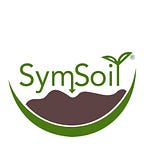Soil Health — F:B Ratio Analysis
A tenet of biological farming is Feed the Soil, Not the Plant. If the soil is healthy, it will feed the plant.
Applying management practices that develop and maintain desired microorganism levels and diversity, will feed the plants by cycling nutrients they need. From a business standpoint, it’s important to know that applied material and labor are having the desired effect because the input costs impact the bottom line. SymSoil’s Soil Testing Lab in Fairfield can do this analysis for you, but often a quick test is sufficient to monitor your soil.
SymSoil’s focus is on improving sustainable farming, increasing productivity of victory gardens and reducing costs for regenerative or biological farmers. In that context, we are delighted to share our discovery of a new tool, an inexpensive and rapid DIY test to assess and monitor the soil microbe biome and health of soil, in your garden or at your farm.
The single measure which seems to give the most information about the health and fertility of the soil is the Fungal to Bacteria Biomass ratio, or the F:B. The microBIOMETER® gives you this ratio within minutes.
The microBIOMETER® enables testing of your soil yourself, which saves the time required to ship samples to a lab and wait for results. Developed to enable anyone to do their own soil testing, this allows rapid quantification of the microbial life in soil.
MicroBIOMETER® comes as a complete package. Using their mixer and tubes, the soil sample is agitated in a solution designed to separate the microbes from the soil particles they normally adhere to. A few drops of solution-plus-microbes are then applied to a membrane spot, which captures the microbes.
Using the microBIOMETER® app, you snap a picture of the membrane, which sends the image to company. The software uses the image and compares the color intensity of the captured microbes with a built-in color intensity scale to determine the level of microbes in solution. We have found the microBIOMETER® service to be quite fast — often taking just a few minutes.
When soil organisms are nurtured, they benefit the whole system by cycling nutrients critical for plant growth. Microorganisms like bacteria and fungi form the base of this food web — digesting and assimilating nutrients from decaying organic matter. Slightly larger organisms like arthropods contribute by shredding the material — breaking it down into smaller pieces for faster processing. The bacteria and fungi are consumed and excreted over time by their predators — nematodes, protozoa, earthworms.
This is the key to nutrient cycling: assimilation and immobilization followed by metered release that provides sustenance to plants. Measuring the level of bacteria and fungi in your soil indicates how many microorganisms you have, to intake and hold on to nutrients — confirming there are enough of them to work at a useful rate, and that you have the correct fungal to bacterial ratio for your plants.
We recommend testing with the MicroBIOMETER for the following:
- Comparing microbial biomass in soil after planting different cover crops, to evaluate which crop is most effective
- Tracking microbial biomass levels over time to confirm the effectiveness of amendment application, or to confirm when amendment is needed (or not)
- Evaluating compost quality
- Determining an appropriate dilution for compost extract or tea
- Determine if plants have been successfully colonized by AMF (arbuscular mycorrhizal fungi)
The advantage of the microBIOMETER test is speed and low cost. From sampling to having the numerical data on your phone takes around 20 minutes and costs less than $20 per test. This makes it practical to test multiple samples, such as multiple locations on a field, for a richer data set. The microBIOMETER® test also returns data about the fungal to bacterial ratio in soil, compost and even compost tea.
SymSoil is now offering the newest version of the MicroBIOMETER, which combines optical recognition, based on microbe particle size and dye, to rapidly asses the F:B ratio. A new, low priced, introductory package is available with ten test. Click here to purchase.
What is the best F:B ratio for your garden or farm? That depends upon what you are growing. We suggest you read our earlier post, The Right Microbe Biome for Your Crop or call us at 833-SYMSOIL to talk to a Soil Maven about your situation.
At the end of the day, the higher trophic levels are crucial to nutrient cycling and plant health.
SymSoil offers laboratory services which include protozoa counts, fungal potential (fungal spore counts), assessment of pathogens and other insights from microscopy.
But the F:B ratio has proven, over time and in trials, to be the single best, stand-alone assessment of soil health and land fertility. Finally, there is a DIY (Do-It-Yourself) test with rapid results.
Once you have a handle on the state of your soil, SymSoil offers amendments to enhance your soil food web as needed: Robust Compost, V50, and Fungal Infused Biochar.
This it the 2nd in a series of articles on testing for soil health. Visit us here:
https://symsoil.com/soil-health-tests-which-one-is-right-for-you/
About SymSoil® Inc.
SymSoil is an evidence-based, soil health company with products and services to improve the profitability of all growers, based on a deep understanding of soil biology. The company has soil amendments for agriculture that restore the full-spectrum of microbes that provide the right food to the plant roots, improving plant health, and making food more nutrient dense and flavorful, the way nature intended. SymSoil has products and services for growers using regenerative agriculture methodologies which improve profitability. SymSoil was named one of 2019’s AgTech Companies to Watch. Accredited Investors can learn more about SymSoil as an impact investment here
Originally published at https://symsoil.com.
